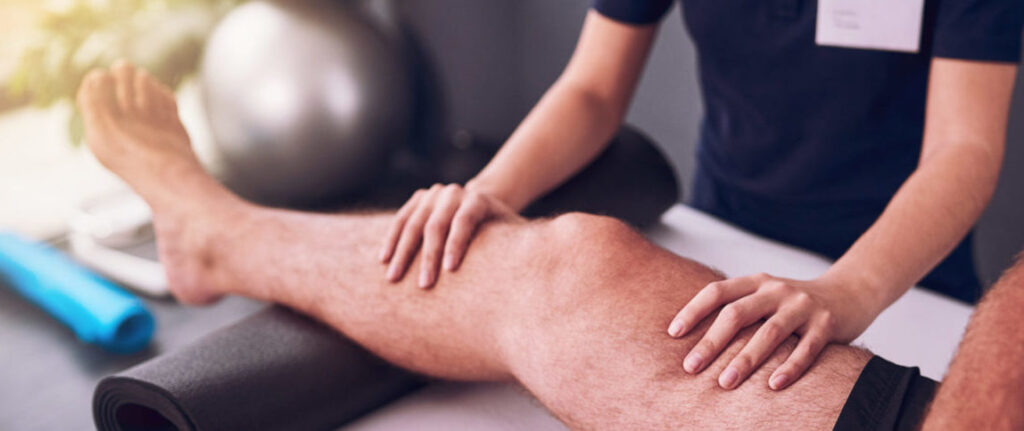Instrument Assisted Soft Tissue Mobilization (IASTM)

Are you suffering from an injury that isn’t healing as quickly as you would like? Do you have a recurrent injury that keeps rearing its ugly head every few months or every year? Have you experienced excessive scarring after a surgery that is impeding your tissue flexibility and your lifestyle? The culprit may be dysfunctional soft tissue. Instrument Assisted Soft Tissue Mobilization, or IASTM, may be the intervention you need to get you back to moving without pain and limitations. It is a treatment technique used in physical therapy to promote the regeneration of healthy tissue and can help you return to the activities that you love.
What Is Dysfunctional Soft Tissue?
There are two main scenarios for which your physical therapist will recommend IASTM- incomplete healing and excessive healing. Both can cause movement dysfunction and associated pain.
After an injury of any severity, either major (surgery, lifting injuries, sports injuries, ankle sprains), or minor (stubbing your toe, bumps, scrapes), or anything in between, your body will undergo a process of healing in which the injured tissue is remodeled into stronger tissue. This is a good thing! It is how our bodies heal and make us stronger. But, in the case of incomplete healing (sometimes called tendonitis or tendonosis by your doctor), your tissue remains weak and can no longer withstand the forces placed upon it by normal movements and activities without restriction and pain.
In the case of excessive healing, there is too much scar tissue or “fibrosis” and it’s not always visible on the surface of the skin. It can be within our muscles, tendons, ligaments, and fascia. Healthy tissue is organized with all the fibers running in the same direction, but scar tissue is disorganized. Imagine a box of dry spaghetti. These are the fibers of your healthy tissue. All the noodles are going in the same direction. Now imagine a pot of cooked spaghetti. This is your scar tissue – a big disorganized mess! The disorganized tissue is not very conducive to movement.
How Does IASTM Help?
IASTM utilizes specifically designed instruments that allow pressure to be applied with a shear, compressive force in the direction of the organized fibers. This means only the disorganized or dysfunctional fibers are engaged by the tool. A physiological response within your body is triggered; the dysfunctional tissue is absorbed and healthy tissue is regenerated to take its place. This process occurs for up to 48 hours after an IASTM treatment and is enhanced by frequent stretching, mobility exercises, and everyday activities.
What Can I Expect During My First IASTM Session?
Your session will begin with a brief warm-up on a machine such as the stationary bike, treadmill, or elliptical. Next, you will receive the IASTM treatment to the entire kinetic chain of the affected area. For example, if you are seeking treatment for an ankle injury, you will receive IASTM to your entire leg, because the goal is to create a cellular change within an entire physiological system. As you receive the treatment, your provider is assessing the tissue texture and gaining insight into which specific tissue structures are contributing to your dysfunction. Based on these findings, you may receive additional manual therapy (often by the provider’s hands). Your provider will then prescribe 2-3 basic stretching or mobility exercises to help guide new fiber alignment (remember the dry spaghetti?) and ask you to perform them frequently throughout the day, every day until your next session. Future IASTM sessions will be performed in conjunction with traditional manual therapy, stretching/mobility exercises, strengthening, and functional exercises to optimize your recovery. IASTM is recommended at a frequency of two times per week for the first two weeks and then one time per week for the next 2-5 weeks, for a total of 6-9 sessions.
If your movement is restricted or painful, and you’re ready to get back to an active lifestyle, you may benefit from IASTM as part of a comprehensive physical therapy program. The staff at Kintsugi Physical Therapy and Wellness are here to help. To schedule an appointment or for a free discovery visit, please call 253-330-8518.
